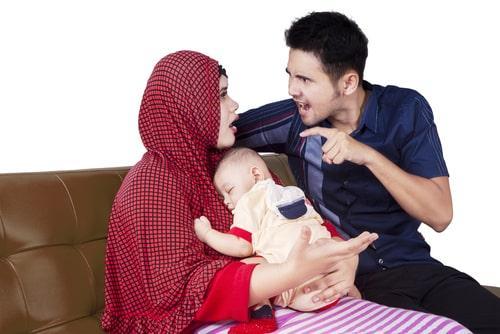Options for Women in a Religious Divorce
 We often work with families in the DuPage County Muslim community who have questions about the ways in which Islamic laws are both in conversation with and distinct from Illinois state laws concerning divorce, child custody, and related matters. One issue that often arises in general conversations about Islamic law and divorce is the options that are available to women who want to file for divorce. A recent study of Muslim women and Islamic divorce traditions discusses some of the assumptions that people make about women and Islam, and the various options that may be available to women who are religious and also want to get divorced.
We often work with families in the DuPage County Muslim community who have questions about the ways in which Islamic laws are both in conversation with and distinct from Illinois state laws concerning divorce, child custody, and related matters. One issue that often arises in general conversations about Islamic law and divorce is the options that are available to women who want to file for divorce. A recent study of Muslim women and Islamic divorce traditions discusses some of the assumptions that people make about women and Islam, and the various options that may be available to women who are religious and also want to get divorced.
If you are considering your options for divorce but have concerns about divorce in the Islamic tradition versus divorce under state law, one of our experienced Oakbrook Terrace divorce attorneys can speak with you today. At Farooqi & Husain Law Office, we are committed to serving the Muslim community in DuPage County and can discuss options with you.
Dilemmas of Religious Versus Secular Divorce
According to Anisa Buckley, the author of the study cited above, the Islamic tradition recognizes that both Muslim men and women are allowed to divorce. Yet in some community traditions, Islamic laws are interpreted in ways that allow men to divorce their wives unilaterally, while women must secure their husband’s consent. As such, in some situations, a Muslim woman could find herself fully able to obtain a secular divorce according to state law, but unable to obtain an Islamic divorce because her husband will not agree. In this way, Islamic divorce and secular divorce under state law run parallel to one another and largely do not impact one another.
Under the Illinois Marriage and Dissolution of Marriage Act (IMDMA), a person’s religion does not have any bearing on his or her ability to get divorced in DuPage County. To be sure, religion will typically only come up in a divorce case in relation to minor children from the marriage when the court is allocating parental responsibilities. Otherwise, a person’s religion is unlikely to impact the divorce process. To get divorced in Illinois, the petitioner only must assert that irreconcilable differences have caused the irretrievable breakdown of the marriage. Once the parties have lived separate and apart for six months or longer, there is an irrebuttable presumption that this “irreconcilable differences” requirement has been met.
Islamic Law and Consent to Divorce
Yet where does this leave a Muslim woman who also wants to have an Islamic divorce? As Buckley clarifies, although religious and secular divorces may run parallel to one another, this fact alone does not mean that a woman should have to choose between the two. There are options available to women to initiate a religious divorce that do not require a husband’s consent.
Buckley explains that women are able to initiate divorce through the process of khul, which is a form of no-fault divorce referred to in the Qur’an and Sunnah where the husband’s consent was not stated to be required. Within these contexts, women can seek a religious divorce on grounds of incompatibility. Buckley also cites other avenues for a religious divorce when the husband is at fault and notes that in some cases, women can specify in their marriage contract her right to divorce through talaq at-tafwid.
Seek Advice from an Islamic Divorce Lawyer in DuPage County
If you have questions about Islamic divorce, one of our skilled DuPage County divorce attorneys can help. Contact Farooqi & Husain Law Office online or call us at 630-909-9114 to learn more about our services.
Source:
https://www.mup.com.au/books/not-completely-divorced-paperback-softback


 630-909-9114
630-909-9114




